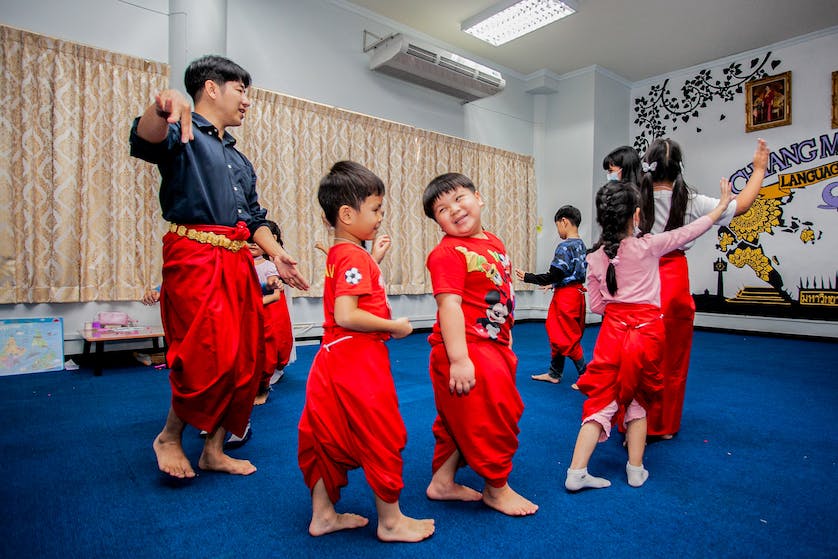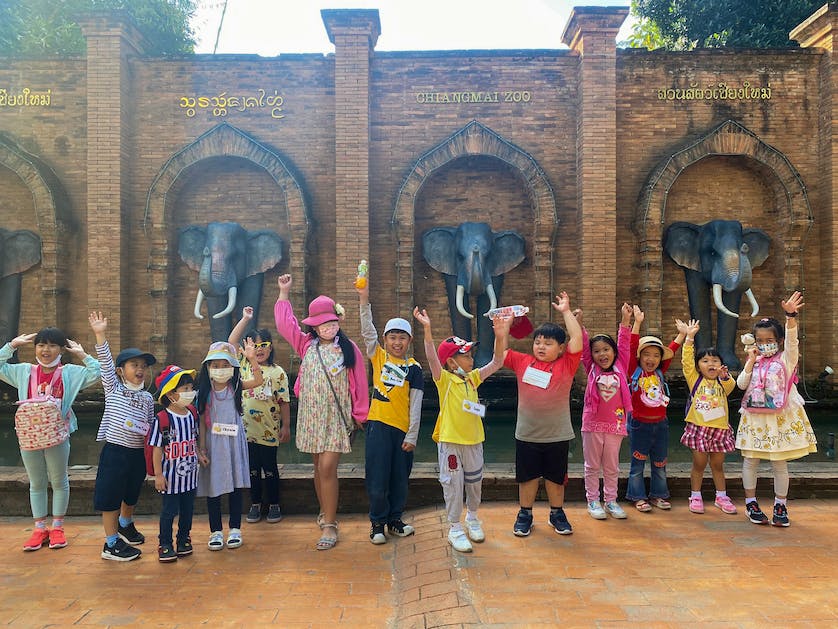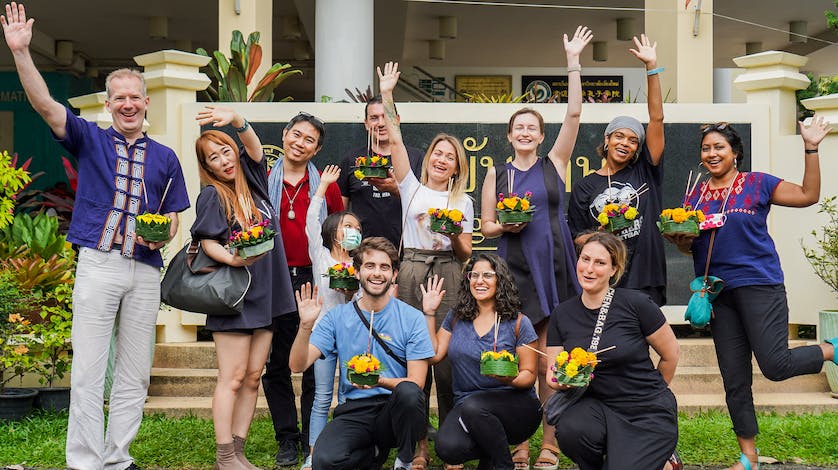Unless you have a talent for language, learning a new one can be daunting and challenging.
Thai is no exception. Each year so many expatriate residents in Chiang Mai, and across Thailand, struggle at various schools and tutorials to come to grips, and master, the language. There are all sorts of choices of syllabi and styles of teaching, and many people have to shop around and try different methods before finding the right fit; after all we all learn differently.

That is why the grandest of educational institutions in the north, Chiang Mai University, has entered the language learning game and is pulling from its formidable pool of educational experts to offer a language institute – Language Institute Chiang Mai University (LICMU) – which goes beyond the linguistics of a language to the culture which forged and is forged by it.
“We started off with the aim of developing language competency of staff and students within the university,” explained Karim Hussain, Head of International Office, who has been part of the organization since its inception back in 2006. “These were supplementary courses in English language. But what we soon found was that the demand was much greater while also being much more complex and nuanced for different individuals. This is when we realised that we needed to expand our thinking.”

Today LICMU has its own large building on campus with 36 air-conditioned classrooms, a 70 seater multipurpose audio theatre and a 200 seater auditorium packed with over 50 administrative staff as well as 30 language instructors from across a dozen different nationalities. It offers language courses in Thai, English, Korean, Japanese, Chinese, German, French, Italian, Spanish, Dutch, Russian and Burmese, though Karim says that if there is a language that a potential student wishes to learn the institute will find a way to make it happen.
“While we do offer standardised language courses; beginner, intermediate, and advanced, as well as the 120 hour TEFL programme,” explained Asst. Prof. Sakorn Ruankai, Deputy Director of LICMU, “we take it much further because with the academic resources on campus we can. I think that this is why, even in spite of the pandemic, we have had 200 international students enroll over the past three months.”
“We realised that people have different needs and expectations in learning a language and have therefore tapped into the resources of the university’s 23 faculties in order to offer bespoke courses tailored to specific student needs,” he added.

Students at LICMU can learn Thai alongside other interests ranging from culture to the environment. For new arrivals, for instance, Thai language classes can be embedded into cultural studies with activities and classes intermingling with the aim of enhancing the understanding of one another. Students can enjoy outings to cultural sites or events such as Loy Krathong or Songkran, they can learn Thai cooking and visit markets, take dancing lessons, even muay Thai can be incorporated as part of the language study. Students with an interest in the environment can enroll in a workshop which focuses on the United Nation’s Sustainable Development Goals, learning about how to reduce the use of household energy or learning how to apply knowledge to the local community. Chiang Mai’s NGO workers, many of whom work on border issues, can also learn Burmese language while also studying a myriad of issues such as ethnicity of mountain people or cross border commerce.
“By teaching language thorough topics of interest to students such as sustainability or culture,” explained Prof. Dr. Sompong Witayasakpan, Director of LICMU, “our students learn more than a language, they learn about a topic of interest as well, both fields enhancing and connecting with one another.”
“We have English and Thai language classes for children too,” added Karim who went on to say that the institute offers kids’ camps for holidays and evening classes for small children filled with activities from visiting the zoo to painting, rice planting to cooking. “Parents can be in one class studying Thai while the children can be in another having fun while learning,” he added.

Another unique selling point of LICMU is its enviable setting. Sitting near the clock tower of the main Chiang Mai University campus, enrolled students at LICMU are able to request access to many university facilities normally closed to outsiders – sporting facilities and the library being two of the most popular. Being part of campus life can be appealing, especially as Chiang Mai University campus is surely one of the most beautiful in Thailand, with its rolling hills as a backdrop and generous green spaces.
“We also offer up a ‘Buddy’ programme should anyone wish,” added Asst. Prof. Sakorn. “This is great for our students who wish to have the experience of conversing in another language, and it can also be an enjoyable way to get to know the campus and the people for new arrivals learning Thai. We are a gateway into the university for expats.”
“The pandemic has of course affected us,” explained Prof. Dr. Sompong. “Most of our international students had to return to their home countries. But we adapted and we adapted fast. We immediately implemented a blended learning environment, using all the latest technology such as Zoom, Microsoft Team and video production, so that our students far and wide could continue to learn and keep them engaged.”

It is this adaptability which is the hallmark of the institute.
“We are rolling with the change,” added Karim, “this allows us to offer private courses designed for just about all specific needs and interest, so if you want to learn Thai for your software business or to engage with local farmers, we can design a course focused on that.”

As well as one-year education visas, LICMU also offers certifications and e-transcripts which would add gravitas to any CV or portfolio.
“This would look good to any future employer,” added Karim.
“Stop by and have a chat with us and tell us your needs and we will see what we can do for you,” concluded Asst. Prof. Sakorn.







